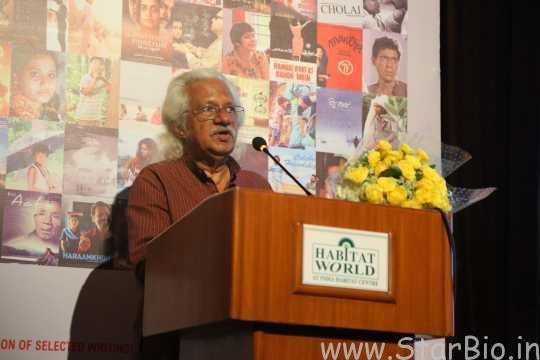Dadasaheb Phalke awardee Adoor Gopalakrishnan, whose oeuvre prominently placed Malayalam cinema on the world map, feels it is time for India to completely do away with censorship in films as that would help the art form thrive.
In an interview with IANS, the auteur, considered one of the greatest filmmakers of India and a pioneer of the New Cinema movement in Kerala, delved into issues like censorship, protests by fringe groups over films and the rise of the web-series culture in the country.
“It is time we did away with censorship. Having censorship in cinema is a big mistake. But this mistake has been perpetuated by the commercial cinema of Mumbai because they want the censor board’s certificate as a shield against any litigation filed by other parties, both inside and outside the industry.
“I feel abolishing censorship would certainly help cinema to thrive as an art form. Nobody should be allowed to interfere in filmmaking, not even the government. They are no specialists in this, so how can they interfere? The government often uses its authority in a wrong way,” Adoor contended.
Referring to a 1979-committee that he, Shyam Benegal and Bengali filmmaker Mrinal Sen were part of, Adoor said they decided to recommend that censorship be abolished from Indian cinema but faced strong resistance from a number of director-producers of commercial cinema.
“When the time for the final decision came, there was a strong plea from both Ramanand Sagar and BR Chopra against it. They said censorship gives protection from unnecessary legal battles over films. So the recommendation couldn’t be made,” he reminisced.
Adoor, who has often highlighted the socio-political issues through his use of symbolism in films, said talking openly about the loopholes in the censor board and the government’s malpractices against films that question institutions have turned him into “an enemy of the administration”.
Talking about the recent surge in viewership of online streaming media services like Netflix and Amazon Prime in India, the director said the trend cannot be termed another “new wave” unless the makers come up with something new in terms of filmmaking and content.
“The OTT (over-the-top) platforms like Netflix are buying the big films of Mumbai. Unfortunately, that does not provide much variety in terms of its filmmaking or content. Even while producing original content, they are imitating what is coming out as popular. So it is not making much difference to the art.”
It was Netflix that produced a film like Roma. If they make films of that standard here, then welcome. That will be a real service to the cinema… Otherwise, they would further popularise the rubbish,” he contended.
Adoor, who has made 12 features, several shorts and documentaries, many of which fetched him National Awards in a career spanning over half-a-century, said he loves making films in his own unhurried pace and believes that making a “good film” is still a tough job.
“I admire films by Satyajit Ray, Ritwik Ghatak and Mrinal Sen as they opened a completely new track for the next generation filmmakers to pursue and develop upon. But I do not want to make films like them. I make films the way I like,” he said.
Asked about the protests and violence over a number of recent films, including Padmaavat (2018), The Accidental Prime Minister (2018) and Manikarnika: The Queen of Jhansi (2019), Adoor said the trend of resorting to protests even before a film releases, is propaganda.
“People have their right to protest as long as they first see the film. We cannot stop that. But if people or groups are protesting even before they have seen the film, it must be some sort of a propaganda,” he added.

